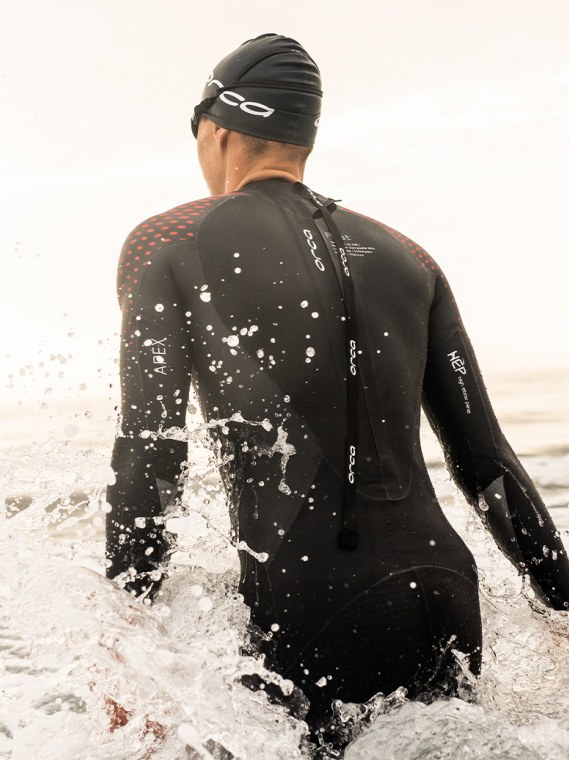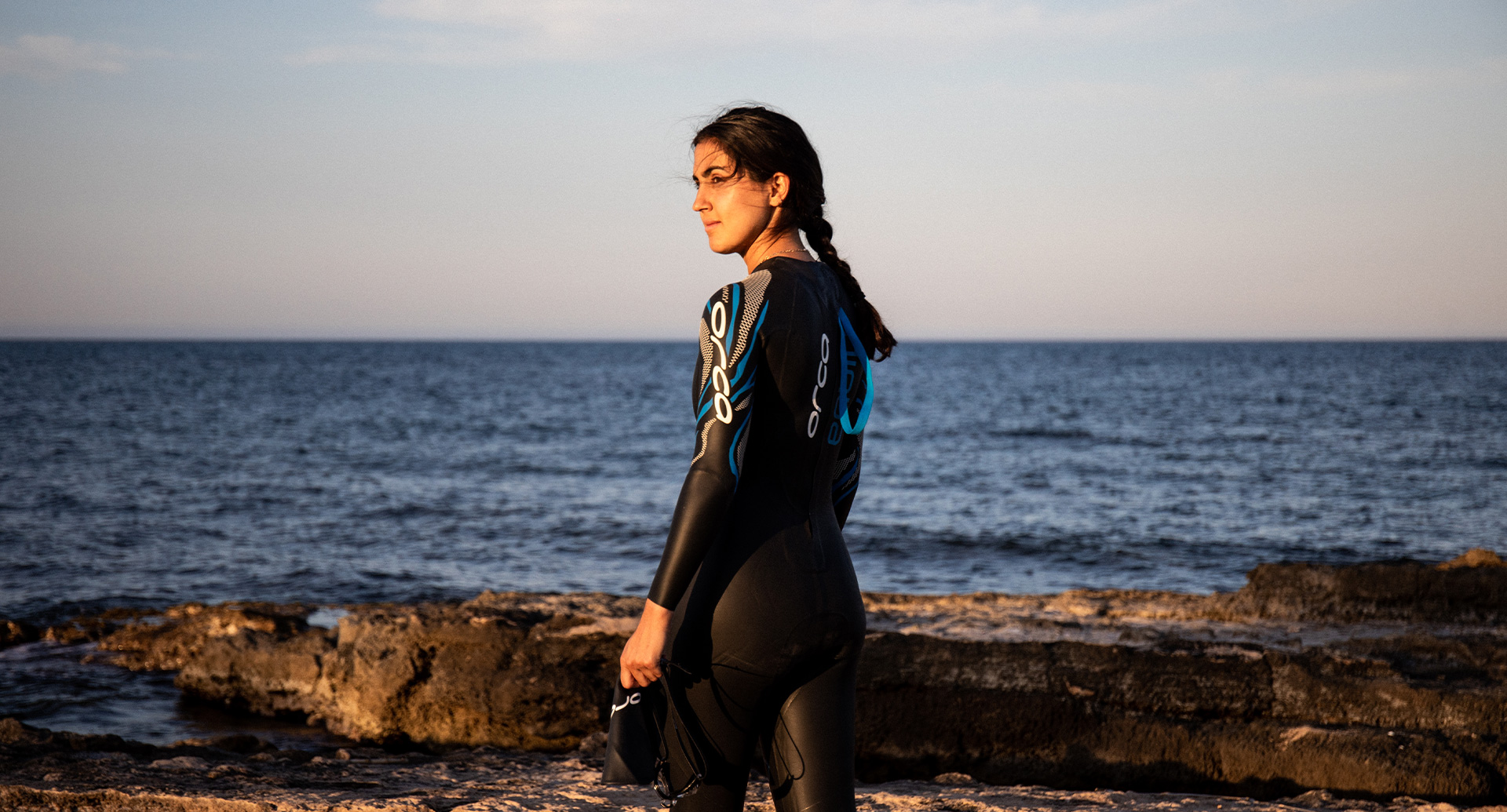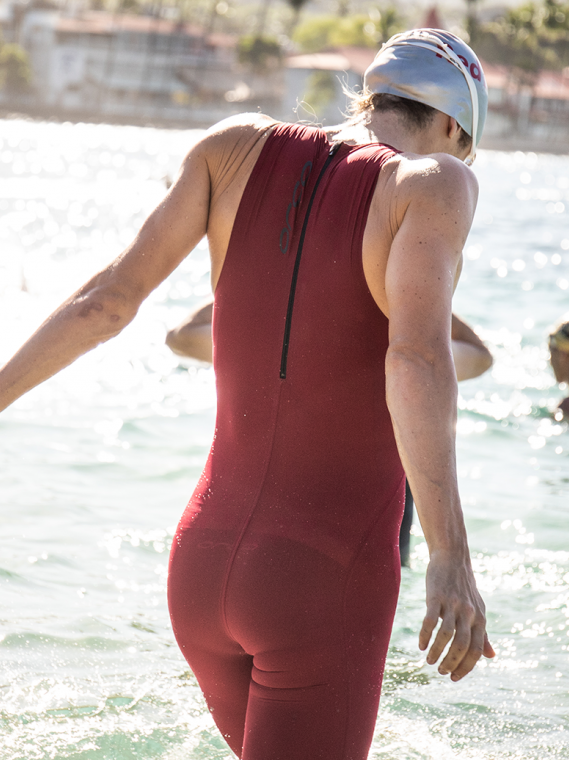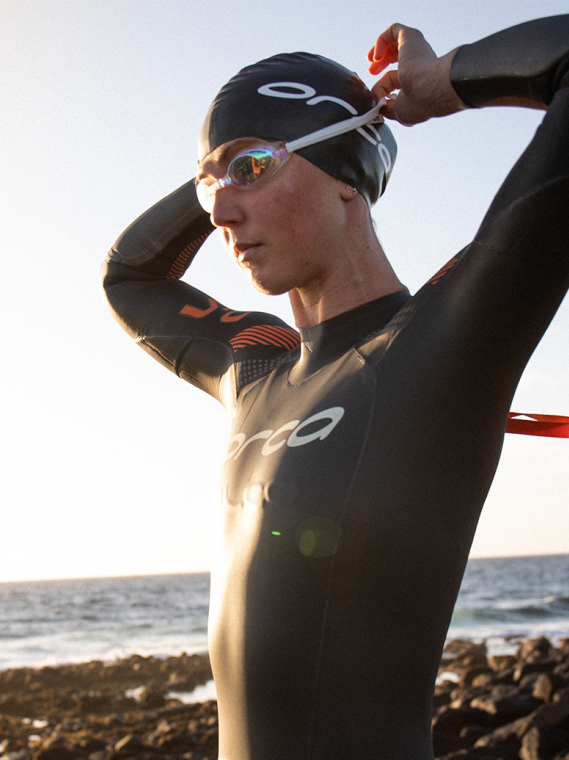
Emotional intelligence, the key to athletic performance?
The ironminds
March 28, 2022
In 2010 at the Ironman World Championship, eventual winner Chris McCormack was being hunted by Andreas Raelert who was getting closer and closer in th...
Back in the days of yore, when dinosaurs roamed the earth, and I was a professional triathlete, specific information about how hormone cycles affect my training as a woman was hard to find.

Back in the days of yore, when dinosaurs roamed the earth, and I was a professional triathlete, specific information about how hormone cycles affect my training as a woman was hard to find. And the few things we did know were shared through personal experience from one elite athlete to another. There were no studies to read or podcasts to listen to and no app to help guide our training.
I don't ever remember a coach knowing a single thing about female hormones, and when we did try to talk about it, the tone was always negative. I remember one coach saying, "When you work with women, you just have to accept that they will occasionally have an off day."
Huh? What if we didn't accept that?
What if instead we asked, "Is there some way to work with our female physiology that might improve not only our performance, but also our overall health?"
Well, one woman did ask that question and many more- Dr. Stacy Sims.
Dr. Sim's research focuses on female physiology and exercise and how the two relate. She later teamed up with Selene Yeager, and they wrote the mind-blowing book ROAR based on Stacy's science. And everything changed.
I'm not a medical doctor or a sports scientist; I'm just an athlete who was relieved to hear that I could work with my own physiology in a positive way - finally.
From 2014-to 2020, only 6% of exercise science studies were done exclusively on women. Roughly translated, this means we still have a long way to go.
And while there's still a lot to learn, I'd like to share some highlights that have transformed not just my training but also my mental health and enjoyment of exercise.
Below is a random list of the things that have helped me personally; for more, check out Dr. Stacy Sims. And for triathlon-specific information, head over to Feisty Triathlon.

So here's my list:
1. WHEN IT COMES TO HORMONES, YOU CAN PERFORM AT A VERY HIGH-LEVEL DURING MENSTRUATION
While menstruation can come with some discomfort, cramping, and pain, it is also an excellent time to perform a key workout or race as far as our hormones are concerned. If you can control the discomfort, your body is ready to throw down.
2. DURING THE FIRST HALF OF YOUR CYCLE, YOU'RE SUPERWOMAN
The first half of your cycle, from menstruation to ovulation, is known as the follicular or "superwoman" phase. It is a great time to do your key workouts, lactic threshold training, improve your strength, and hit personal bests.

3. THE END OF THE LUTEAL PHASE (I.E., RIGHT BEFORE MENSTRUATION) IS NOT A GREAT TIME TO PERFORM YOUR BEST- BUT IT ONLY LASTS 1-2 DAYS
It turns out that what I learned through trial and error and through sharing experiences with other athletes is true. A couple of days before your period arrives are the worst hormonally for performance. I personally used to avoid racing on these days and focus instead on aerobic work and recovery instead of PRs.
4. YOU MIGHT HAVE AN "OFF" DAY WHEN YOU'RE OVULATING
I don't think this is true for me, personally, but I know many women who have an off day when they ovulate. And it makes sense. Your body is busy releasing an egg and doing its job for the propagation of the species. Humanity- you're welcome. Maybe don't plan a race that day.
There is also an increased risk of injury at this time, so this might be a good day for an easy spin or focus on technique.

5. WOMEN NEED TO LIFT HEAVY. PERIOD
If you take nothing else from this article, take this (straight to the weight room).
Women start losing muscle density around age 30, and it gets worse after 50. We need to do high-intensity power training to stimulate our neuromuscular system. This activates the maximum number of muscle fibers and keeps our type II muscle fibers engaged, which helps us maintain strength throughout our lives.
Of course, "heavy" means something different to each of us… it's a "heavy for you" situation. If you haven't done weight training before, find a coach! Using a proper technique is imperative.
6. WE NEED MORE PROTEIN DURING PERI-MENOPAUSE AND MENOPAUSE
Technically, "menopause" is when we haven't had a period for one full year. Peri-menopause is 5-10 years before menopause when hormones shift and can fluctuate wildly. Women in their 40's and 50's need to focus on high-intensity training and lifting heavy while eating more protein and taking more recovery days. Long slow distance can be sprinkled in if we love that stuff or are training for a long event.

7. KNOWLEDGE IS POWER
When it comes to hormone cycles, knowing what is happening helps us make good decisions about nutrition and training that support our training, health, and sense of well-being. Being educated means that we understand the underlying reasons why we feel great one day and not the next. Instead of blaming ourselves for being lazy or soft, we can accept our amazing bodies and make good decisions.
The truth is, when it comes to studying women's performance, we are just getting started. And frankly, I find that very exciting because the next generation will know exactly how to leverage their female physiology to run faster, throw further and jump higher. It means that there is no limit to what women can achieve.

ABOUT SARA GROSS
Sara Gross is a two-time Ironman Champion and holds a doctorate in women’s history. She founded Feisty Media, "a haven for the unapologetically fit and feisty" in 2017 as a way to celebrate fresh and empowered voices in triathlon and beyond. Sara lives in Victoria, BC with her daughter Rosalee.
ABOUT FEISTY MEDIA
Feisty Media is a progressive media company designed to serve the "unapologetically fit and feisty." Founded in 2017 by Ironman Champion Sara Gross, PhD, Feisty is now home to 8 podcasts, including the IronWomen podcast, Girls Gone Gravel and Hit Play Not Pause. Feisty educates and amuses the masses daily on Insta and TikTok as well as hosting several events such as the Women's Performance Summit and Feisty Menopause Summit.

March 28, 2022
In 2010 at the Ironman World Championship, eventual winner Chris McCormack was being hunted by Andreas Raelert who was getting closer and closer in th...

September 16, 2021
When people ask if I will ever do Ironman again, my answer is always the same. If you were an accountant and you retired from accounting, would you ke...

March 8, 2021
In recent years there’s been a kind of… awakening for women in triathlon. As women, we realize that equal access to races and equal prize money is ama...